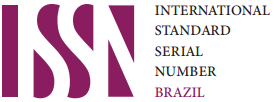Teatro, tecnologias e educação em perceptos e afectos inovadores
DOI:
https://doi.org/10.14393/OUV-v17n2a2021-60789Keywords:
educação, arte, teatro, performance, tecnolgiasAbstract
This article goes through some reflections at the epistemological and empirical level on theater, while seeking to better understand how the concepts related to theater would be taking place in this fundamental territory of Art in interfaces with technologies that create new percepts and affects in contemporary art in dialogue with education. Intercepting the pandemic scenario, which started in 2020, the urgency of further reflections on the creation and practice of new languages is added. This is because, among other devices provided by the most recent uses of new technologies, social networks, classes and online events also became an integral part of theater and education, designed in the context of non-face-to-face interactions during the pandemic period. Gilles Deleuze and Antonin Artaud lead us as referential thinkers, as we understand both as educators, in the sense that they have made a school about philosophical and artistic creation focused on Difference and Life. Add, still, the fact that in the new pandemic scenario, read semiotically, the body and the mask have suffered de (re) territorialization, if seen in the light of the Deleuzian concepts of “faciality” and “body without organs”, this last one inspired by Artaud.
Downloads
Downloads
Published
How to Cite
Issue
Section
License
Copyright (c) 2022 ouvirOUver

This work is licensed under a Creative Commons Attribution-NonCommercial-NoDerivatives 4.0 International License.
Direitos autorais para trabalhos publicados nesta revista são do autor, com direitos de primeira publicação para a revista. Em virtude de aparecerem nesta revista de acesso público, os trabalhos são de uso gratuito, com atribuições próprias, em aplicações educacionais e não comerciais.











